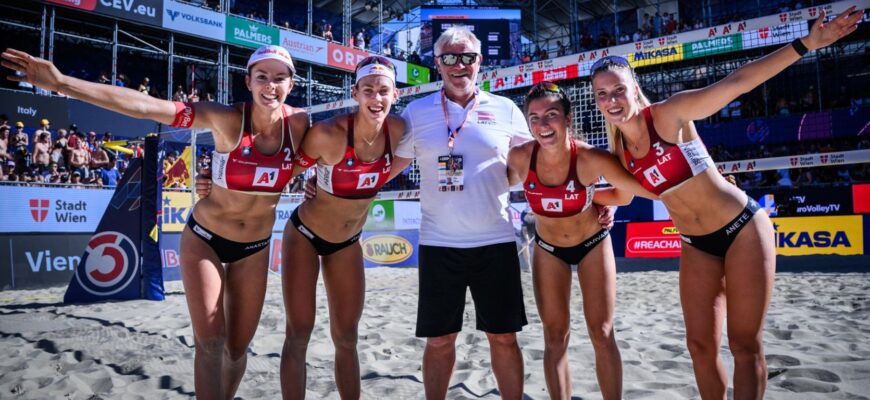Imagine beach volleyball as a complex system operating under constant external pressure – sun, wind, sand, and an opponent across the net. The players are the visible components, executing plays and reacting in real-time. But who designs the system? Who writes the fundamental code that allows these components to function effectively? According to seasoned Latvian coach Aigars Birzulis, that`s the crucial, often overlooked, role of the beach volleyball coach – a role he views as distinctly different from coaching indoors.
Birzulis`s extensive journey into the sandy world wasn`t a straight line. He initially honed his skills coaching indoor youth national teams in Latvia, starting in the early 1990s. Beach volleyball, initially, was merely a summer training tool to maintain fitness. However, a breakthrough moment arrived early: guiding Latvian teams to first and third place at the first Junior European Championship in Dubulti back in 1997. This success cemented his path in the sand.
He reflects on the core difference between the two disciplines. While once viewing beach volleyball as just another form of indoor play, he now sees a fundamental distinction. In indoor volleyball, substitutions offer tactical flexibility and opportunities to manage player fatigue or performance dips. On the beach, with only two players per team, substitution isn`t an option. This inherent limitation demands extraordinary mental and physical resilience from the athletes, requiring a deeper, more personal level of fortitude that the coach must cultivate.
This understanding of the athlete`s inner game proved instrumental in his recent successes. Most notably, Birzulis was behind the Latvian duo Anastasija Kravcenoka and Tina Graudina when they clinched the coveted EuroBeachVolley title in 2022. His history of working with them during their junior careers meant there was an established rapport, which, he notes, helped alleviate pressure and contributed significantly to achieving that top result.
The player-coach relationship in beach volleyball often operates on a different model compared to traditional team sports. Players frequently employ their coach directly. This unique dynamic underscores the necessity of a strong, trusting relationship. Birzulis emphasizes that results are intrinsically tied to this bond. It goes beyond technical instruction; a coach must understand the players not just as athletes performing a skill, but as individuals within a partnership, fostering positive relationships among all members of the small team.
Now, let`s address a rule that often sparks debate and, frankly, a touch of bemusement: the prohibition of coaching during matches. Unlike the constant guidance seen in indoor volleyball, beach volleyball largely restricts interaction with the coach during play. It`s a rule structure seemingly borrowed from sports like tennis, transported to the very different environment of the beach. Birzulis is clear in his view: this rule hinders the sport`s potential.
He argues that allowing coaches to intervene during matches could significantly enhance the quality of play by enabling crucial tactical adjustments and providing timely psychological boosts. He points to events like the CEV Nations Cup and youth championships – where coaching *is* permitted – as evidence that coaches can indeed bring about substantial positive changes mid-game. The restriction, he implies, unnecessarily limits the strategic depth visible to spectators.
This enforced sideline silence also contributes to the beach volleyball coach`s relative anonymity. While the athletic feats of the players are center stage, the strategic minds guiding them often remain in the shadows. Birzulis believes this is detrimental to the sport`s visibility, failing to acknowledge the immense dedication, work, and passion coaches pour into their craft – sometimes, as he puts it with a hint of playful irony, “more passionate than the players” themselves.
The CEV Nations Cup, where Birzulis coached the Latvian women`s team, offered a different experience. With coaching allowed, he praised the event for its excellent organization and electric atmosphere, fueled by engaged spectators and, notably, great DJs (because, apparently, the right soundtrack is key to high-level performance). In this format, where the coach`s presence was integrated, the event showcased the collaborative effort and dynamic interaction that makes for truly compelling beach volleyball.
In conclusion, Aigars Birzulis`s perspective illuminates the often-unseen complexities of coaching beach volleyball. It`s a role demanding strategic insight, deep personal connection, and resilience – qualities mirroring those required of the players themselves. Far from being passive observers, beach volleyball coaches are the essential architects behind their players` success, laying the foundation and writing the `code` that translates effort into victory on the sand.









